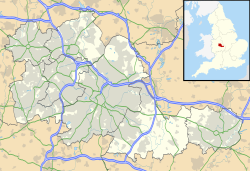| Gas Street Studios | |
|---|---|
 Gas Street Studios as it appears today (with 2006 ITV Central logo). | |
| Former names | Carlton Court (1994-1995), Central Court (1995-2009), Carlton Television Birmingham (1999-2003) |
| General information | |
| Type | Television studios |
| Location | Birmingham, United Kingdom |
| Address | ITV Central Central Court Gas Street Birmingham B1 2JT [1] |
| Country | United Kingdom |
| Coordinates | 52°28′36″N1°54′37″W / 52.476765°N 1.910269°W |
| Current tenants | ITV Central |
| Construction started | August 1995 |
| Completed | June 1997 |
| Inaugurated | 1995 |
| Client | ITV Central |
| Landlord | Cube Real Estate |
| Design and construction | |
| Architecture firm | Peter Hing & Jones (Birmingham) |
Gas Street Studios is a studio complex operated by ITV plc in Birmingham, England. The complex is currently only used by ITV Central for the broadcast of ITV News Central and much of the complex has been sold off for other uses. The complex had also previously been used for other broadcasts including the former home of CITV. Today only 45 ITV Central staff work at the Gas Street Studios, significantly less than in June 1997 when the studios opened and there were over 400 staff working for Central Independent Television at the site.
